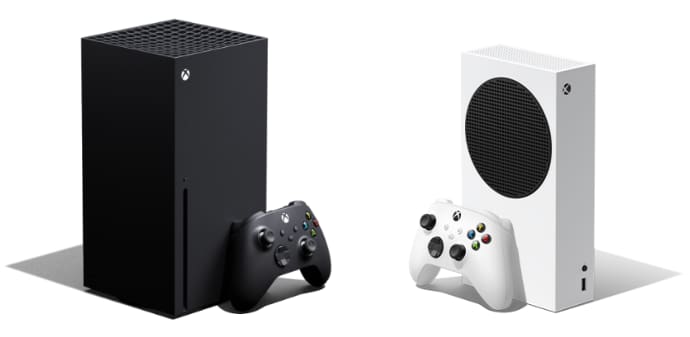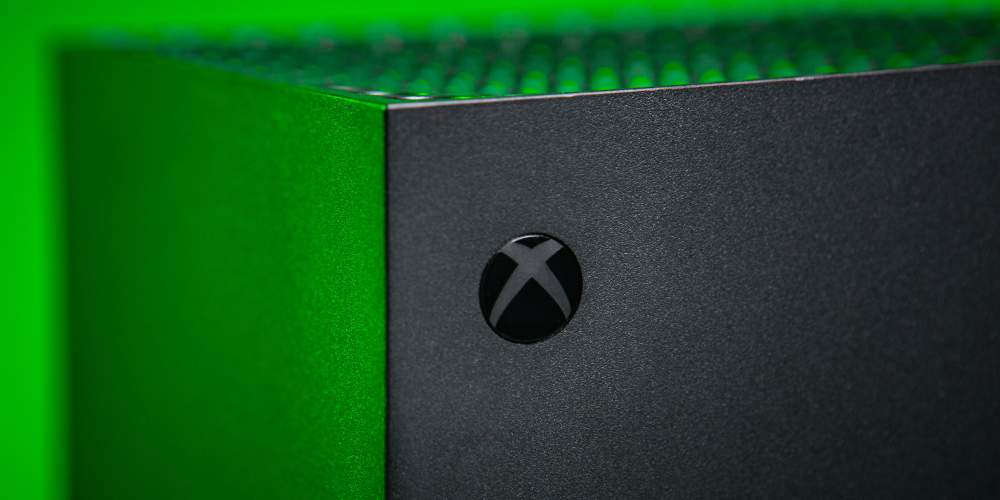As this point, we're well into the newest console generation (even if the hardware itself can still be hard to acquire). Despite that, it's pretty clear that console generations aren't as clear-cut as they used to be.
Both the Xbox Series X and Xbox Series S (as well as Sony's PlayStation 5) have taken a more PC-style approach to console gaming. This means that most new games are still available to play on the previous generation of consoles, but look and run better on current generation hardware.
With Microsoft's Xbox Series X|S, this gets even trickier. Should you opt for the fancier of the two console models if you can afford it? Or are you better off with the Xbox Series S and saving your cash?
The Major Similarities, Explained
It may be tempting to think of the Xbox Series X as "the better one" (because it costs more) and the Xbox Series S as "the worse one" (because it's cheaper), but it's not that simple.
Both Xbox Series X and Xbox Series S support up to 120 frames per second for gaming, so no matter whether you're gaming on a 4K TV or a 1440p monitor, you'll have a smooth experience.
Both gaming consoles also have backward compatibility support built into the system, meaning you can seamlessly play games from previous Xbox generations—even all the way back to the original Xbox.
Both gaming consoles support many of the best features of the current generation (including ray tracing), and they both have the same video streaming support (further explored later in this article).
The Major Differences, Explained

The most significant difference between the Xbox Series X and the Xbox Series S is their graphical capabilities. While both consoles can run games at up to 120 frames per second, the Xbox Series X has the edge when it comes to sheer pixel-pushing power.
More specifically, the Xbox Series X has four times the graphical power of the Xbox Series S (12 teraflops versus 4 teraflops, respectively). In practical terms, this means that the Xbox Series X supports gaming at 4K native resolution while the Xbox Series S is limited to 1440p.
The Xbox Series S lacks a physical disc drive, which makes it an instant NO if you like to collect physical media. It also means you can't buy used games, which could be a dealbreaker if you're a "patient gamer."
Hardware size is another major differentiator. The Xbox Series X weighs in at 9.8 pounds, which is more than twice the weight of the Xbox Series S, which is a comparatively light 4.25 pounds.
While the two consoles are roughly the same height and width (assuming you orient them vertically), the Xbox Series X is much thicker with a depth of 5.94 inches versus the Xbox Series S depth of 2.56 inches. Neither one is tiny, but the Xbox Series X is substantially larger.
You Should Get the Xbox Series X If...
If you're gaming on a 4K TV, the Xbox Series X is definetly the console to get. The 4K native resolution will be noticeable on many TVs—and even if it isn't, you can always choose to run games in performance mode for an improved, silky smooth frame rate.
While the Xbox Series S supports ray tracing, it's not as powerful as the ray tracing in the Xbox Series X. What this means is that some games—the ones that really push the console's limits—only support ray tracing on the Xbox Series X, not the Xbox Series S.
If you're a major believer in the ray tracing experience, this could be a big deal that tips you toward the Xbox Series X. Even if you just like pretty reflections, the price bump is pretty much worth it for this alone.
The Xbox Series X is also the one to get if you're worried about future-proofing. We can't promise that Microsoft won't push out a half-step upgrade as it did with the Xbox One X and S, but the Xbox Series X will minimize the risk of future-released games running poorly.
You Should Get the Xbox Series S If...
If you haven't owned an Xbox in a while (or ever), then the Xbox Series S is the perfect console for you.
With it, you'll be able to play every new game that comes to Microsoft's gaming consoles as well as most games that were released on the Xbox One, Xbox 360, and original Xbox.
Are you a minimalist when it comes to your physical space? Then the digital-only Xbox Series S is a solid pick; it's smaller and you'll never be tempted to buy physical discs. It's also perfect for apartments and other small living areas with limited room.
While the disc-less nature of the Xbox Series S means it won't be able to double as a Blu-ray player, it can still serve as a streaming box. Despite a limited gaming resolution of 1440p, the Xbox Series S can stream video up to 8K resolution in Dolby Vision HDR.


